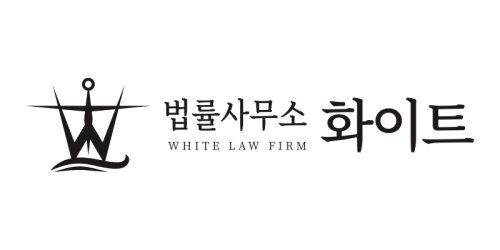Best Property Insurance Lawyers in Seoul
Share your needs with us, get contacted by law firms.
Free. Takes 2 min.
List of the best lawyers in Seoul, South Korea
About Property Insurance Law in Seoul, South Korea
Property insurance in Seoul, South Korea is designed to protect individuals and businesses against losses related to property damage or theft. This can include coverage for residential buildings, commercial properties, and personal possessions. The property insurance market in South Korea is well-developed, with a robust legal framework that seeks to balance the interests of policyholders and insurers. Regulations set by the Financial Supervisory Service (FSS) guide insurers in providing fair and competitive insurance products to consumers.
Why You May Need a Lawyer
Individuals or businesses may require legal assistance in property insurance situations for several reasons. Common scenarios include disputes over claim settlements, interpretation of policy terms, instances of alleged insurance fraud, and issues arising from non-disclosure of material facts during policy issuance. Additionally, when dealing with large-scale property investments or complex claims involving multiple stakeholders, the expertise of a legal professional can be invaluable in navigating the often-complicated insurance laws and ensuring a favorable outcome.
Local Laws Overview
Property insurance in Seoul is governed by several key pieces of legislation. The Insurance Business Act regulates the operations of insurance companies, ensuring transparency and consumer protection. The Commercial Act outlines general provisions related to insurance contracts. Moreover, South Korea adheres to the principle of indemnity, meaning the compensation from insurance cannot exceed the actual market value of the lost or damaged property. Policyholders are required to provide truthful information, and failure to do so may invalidate a claim. It is essential for both insurers and insured to understand these legal aspects thoroughly to avoid unwarranted disputes.
Frequently Asked Questions
What types of property insurance are available in Seoul, South Korea?
Available types include fire insurance, theft insurance, flood insurance, and comprehensive insurance which may cover multiple risks.
Is property insurance mandatory in South Korea?
No, property insurance is not mandatory, but it is highly recommended, especially for property owners and businesses.
How are property insurance premiums calculated?
Premiums are generally calculated based on factors such as the property's assessed value, location, risk factors specific to the property, and the coverage amount desired.
What should I do in case of a property damage or loss?
Immediately report the incident to your insurance company, gather and document all relevant evidence, and follow the claim procedures specified in your policy.
Can an insurer deny my insurance claim?
Yes, claims can be denied if there is evidence of false information provided, non-disclosure, or if the claim falls outside of the covered perils.
What recourse do I have if my claim is denied?
If your claim is denied, consult with a legal expert to review your policy terms and consider negotiating with the insurance company or pursuing litigation.
How does the claims process work in South Korea?
Once an incident is reported, the insurer assigns a claims adjuster to investigate and determine the payout amount. The process involves documentation review and possible property inspections.
Are there any insurance fraud laws I should be aware of?
Yes, committing insurance fraud is a criminal offense, and South Korean laws provide strict penalties for those found guilty of fraudulent acts, including fines and imprisonment.
Is there a time limit for filing a property insurance claim?
Typically, insurance contracts specify a period within which a claim must be submitted. It's crucial to review your specific policy for timelines and requirements.
What role does the Financial Supervisory Service (FSS) play in property insurance?
The FSS regulates insurance companies in South Korea, ensures consumer protection, and enforces compliance with insurance laws and standards.
Additional Resources
For additional guidance, individuals can contact the Financial Supervisory Service (FSS) for regulatory information. The Korea Insurance Development Institute provides educational materials on insurance. Consultation with professional legal firms specializing in insurance law is advisable for detailed legal assistance.
Next Steps
If you need legal assistance in property insurance, consider contacting a legal professional who specializes in insurance law. Prepare all relevant documentation related to your insurance policy and any claims you have made. It's beneficial to schedule a consultation to discuss your specific situation and explore your legal options. Additionally, familiarize yourself with your insurance policy's terms and conditions to understand your rights and obligations fully.
Lawzana helps you find the best lawyers and law firms in Seoul through a curated and pre-screened list of qualified legal professionals. Our platform offers rankings and detailed profiles of attorneys and law firms, allowing you to compare based on practice areas, including Property Insurance, experience, and client feedback.
Each profile includes a description of the firm's areas of practice, client reviews, team members and partners, year of establishment, spoken languages, office locations, contact information, social media presence, and any published articles or resources. Most firms on our platform speak English and are experienced in both local and international legal matters.
Get a quote from top-rated law firms in Seoul, South Korea — quickly, securely, and without unnecessary hassle.
Disclaimer:
The information provided on this page is for general informational purposes only and does not constitute legal advice. While we strive to ensure the accuracy and relevance of the content, legal information may change over time, and interpretations of the law can vary. You should always consult with a qualified legal professional for advice specific to your situation.
We disclaim all liability for actions taken or not taken based on the content of this page. If you believe any information is incorrect or outdated, please contact us, and we will review and update it where appropriate.











